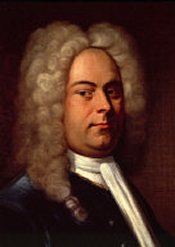Recently in Commentary
Oct. 25, 2007, Sala Cecilia Meireles
I met the young gaucho composer Dimitri Cervo at the 2003 Bienal of Contemporary Music, where his works for solo flute and strings, Pattapiana [named for Pattapio Silva, a great Brazilian flutist who died tragically
young at the beginning of the last century] made quite an impression.
There’s still a hint of jest in the comparison, but it’s not without reason that Jake Heggie and Terrence McNally are mentioned now and then in opera circles as “the Strauss and Hofmannsthal of the 21st century.”
Incoming general director of Santa Fe Opera, Charles MacKay, has made clear he is “in the tradition -- I will not be an agent for radical change,” at the celebrated New Mexico summer opera festival, MacKay says.
Composer Frederick Carrilho was born in 1971 in the state of Sao Paulo, and has studied guitar and composition, most recently at UNICAMP in Campinas. His music has been heard at the recent biennial festivals of contemporary music in Rio, with the Profusão V – Toccata making a strong impression at the Bienal of 2007. We spoke in Portuguese.
October 23, 2007, Sala Cecilia Meireles, Rio de Janeiro
What makes the first visit to Guanajuato’s Teatro Juárez breathtaking is the suddenness of the encounter.
Oct. 25, 2007, Rio de Janeiro.
José Orlando Alves is a young composer, originally from Minas Gerais, but who spent many years in Rio de Janeiro, where he has been active for a decade with the composers’ collaborative, Preludio XXI.
In the long ago, when the best source of music reproduction in the home was a handsome piece of furniture, fitted with hidden audio components, and usually called radio-phonographs, my family had one — from Avery Fisher I believe — that had among its controls a switch labeled ‘presence.’
Uncut with Canada’s Mistress of the trouser-role: the multifaceted Kimberly Barber.
Glimmerglass Opera is in a watershed year. With the departure of Paul Kellogg, who had considerable success developing that annual festival, General and Artistic Director Michael Macleod has chosen to begin his tenure with a variation on the usual four-opera-season, namely a thematic collection
of pieces based on the “Orpheus” legend. “Don’t look
back” is the marketing catch phrase.
Almost thirty years ago a century old tradition ended with the last performance of I Maestri Cantatori.
Santa Fe Opera’s announcement August 10 that English-born impresario, Richard Gaddes, General Director of the company since 2001, will retire at the end of season 2008, took the local opera community by surprise.
The week just ended was certainly of historic moment in the world of North American opera companies.
Perhaps it is a sign that, at last, the countertenor voice has come of age in the hearts and minds of both audiences and the opera establishment.
Back in the early 1980’s two good ideas came to fruition: the much-needed new concert hall for Cardiff, capital city of Wales, and plans to hold within it the first “Singer of the World” competition.
Charleston, S.C. — For over 20 years it was two operas a season here at Spoleto USA, the all-arts
festival brought to this cultural capital of the Old South by Gian Carlo Menotti in 1977.
It is every young opera singer’s dream.
On May 9th, when Santa Fe Opera finally announced that Alan Gilbert had left his post as Music
Director of that company, a long-standing rumor was made official.
Robert Gierlach wishes he could rewrite “Anna Karenina,” the Tolstoi whopper turned into an opera by librettist Colin Graham and composer David Carlson. It’s not that Gierlach, who sings Vronsky in the world premiere of the work at Florida Grand Opera on April 28, has misgivings
about the author’s artistry; he simply wishes that the story could have a happy ending.
Commentary

10 Dec 2005
HANDEL'S GIULIO CESARE
Giulio Cesare in Egitto was the fifth of the full-length operas composed by Handel for London’s Royal Academy of Music, the opera company founded in 1719 by a group of noblemen with the objective of staging Italian opera seria.
Brian Robins [Goldberg No. 35]
Giulio Cesare in Egitto was the fifth of the full-length operas composed by Handel for London’s Royal Academy of Music, the opera company founded in 1719 by a group of noblemen with the objective of staging Italian opera seria.
From the outset the grandeur and scale of Giulio Cesare, first given at the King’s Theatre, Haymarket on 20 February 1724, ensured a popular success reflected not only by London revivals in January 1725, January 1730 and February 1732, but by the opera rapidly being taken up in Germany, where it was performed in a number of centres including Brunswick (August 1725) and Hamburg (November 1725).
Click here for remainder of article.
